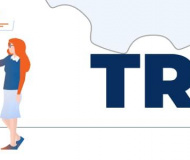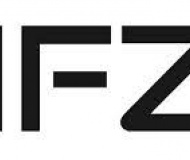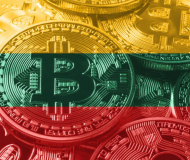Microcredit and p2p-lending
News:
Date added: 13.10.2015 Important notice: Law&Trust no longer work in Russia. Transfer of operational control over Law&Trust in Russia to local management and the formation of the LegalCraft brand was started in 2022 and came into effect in October 2024.
Important notice: Law&Trust no longer work in Russia. Transfer of operational control over Law&Trust in Russia to local management and the formation of the LegalCraft brand was started in 2022 and came into effect in October 2024.
In recent years, business in the field of microcredit and P2P lending is gaining in popularity. You can get acquainted with legislative regulation of microcredit and P2P-lending in the Russian Federation, Ukraine and Spain below.
If you wish to receive advice on the legislative regulation of this activity in other countries - please contact us and we will provide you with qualified consulting.
I. MICROCREDIT IN THE RUSSIAN FEDERATION
Microcredit is one of the main types of microfinance, consisting in granting small loans to people who do not have access to traditional banking for various reasons.
Cost of microcredits is usually several times higher than rates for ordinary bank loans.
Since the early 1990s, this type of activity has spread, and the term has become popular after emergence of a plausible hypothesis that microcredit allows very poor people to become microentrepreneurs and thereby achieve financial independence and sustainability.
In Russia, microcredit is regulated as microfinance activity, that is, activities of legal entities that have the status of a microfinance organization, as well as other legal entities that have the right to carry out microfinance activities in accordance with Russian legislation to provide micro-loans (microfinance).
The following definitions are introduced in the legislation:
- Microfinance organization is a legal entity registered in the form of a fund, an autonomous non-commercial organization, an enterprise/institution (wexcept for a budget institution), a non-commercial partnership, a business association or partnership to carry out microfinance activities, and that is included in the state register of microfinance organizations in accordance with the procedure provided for by Federal Law dated 02.07.2010 N 151-FZ "On microfinance activities and microfinance organizations".
- Microcredit or microloan is a loan provided by the lender to the borrower on terms and conditions stipulated in a loan agreement, in an amount not exceeding one million rubles.
Microfinance market in Russia is divided into three main groups:
1. Loans for small businesses.
Mainly large organizations with a high level of capital work in this segment. Effective interest rate on this type of loans ranges from 20% to 40% per annum on average.
2. Consumer loans.
In this segment there are companies with both high and medium capital levels. Effective rate for this type of loans ranges on average from 100% to 140% per annum. Standard period for granting is from six months to a year.
3. Payday loans (quick and short-term loans) are loans for a small amount of money and for a short period of time, which are borrowed from a financial company (lender/creditor). Such loans are issued and granted by the creditor in the shortest possible time. The concept of "payday" means that it is a short-term loan, usually for up to 30 days. Effective interest rate on these types of loans varies in a wide range - from 450% to 1000% and more per annum. High level of rates is objective, and it takes into account increased costs associated with servicing small amounts (in absolute terms, a company earns a small amount - on average from 400 rubles to 5 thousand rubles on each loan), as well as high risks of non-return due to lack of collateral for loans. Standard period for issuance is from 5 to 15 days, and amount of such loan ranges from 1000 to 15 000 rubles on average.
Microcredit in Russia is regulated by the following documents:
- Order of the Ministry of Finance of Russia N 26n "On Approving the Procedure for Maintaining the State Register of Microfinance Organizations" (Registered in the Ministry of Justice of Russia on 30.05.2011 N 20891) dated 03.03.2011.
- Resolution of the Government of the Russian Federation N 717 "On certain issues of state regulation in the sphere of financial market of the Russian Federation" (together with the "Regulations on the Federal Service for Financial Markets") dated 29.08.2011.
- Order of the Ministry of Finance of the Russian Federation No. 42n "On approval of numerical values and procedure for calculating the economic standards of sufficiency of own funds and liquidity for microfinance organizations that attract funds from individuals and legal entities in the form of loans" (Registered in the Ministry of Justice of Russia on 24.05.2012 N 24300) dated March 30, 2012.
Below are the requirements of Russian legislation for the procedure of establishing microfinance organizations.
a. Requirements to minimum authorized capital of a microfinance organization
Current Federal Law No. 151-FZ "On microfinance activities and microfinance organizations" dated 02.07.2011 does not provide for special requirements for the amount of an authorized capital.
Provisions of part 3 of Article 12 of the Federal Law establish the requirement of mandatory approval of a transaction in the amount of 10% or more of the book value of assets at the General Meeting of Participants (thus, having an authorized capital of 10,000 rubles, it is necessary to approve each transaction in the amount of 1,000 rubles). According to expert estimates of the Russian Microfinance Center (RMC), an authorized capital must be at least 500,000 rubles. In the future, it is planned to introduce amendments to the Federal Law on minimum capital of 5 million rubles, but discussions have been going on for 2 years.
b. Terms of establishing of a company
Total term consists of a registration period of a legal entity (e.g. about 5 days for LLC) and terms for acquiring the status of MFO (result of consideration of an application will be presented within 14 working days after documents have been sent. Information will be entered in the register after 10 days on average).
c. Prices (state fees), mandatory payments
Amount of a state fee is established by p. 4.1, Art. 333.33 of the Tax Code of the Russian Federation, and is 1,000 rubles.
When filling settlement documents, it is necessary to specify the following details related to payment of the state fee:
d. Procedure for opening a microfinance organization
Only a legal entity has the right to open a microfinance organization. According to paragraph 2, Part 1 of Article 2 of the Federal Law, only an organization entered in the State Register of MFOs can be referred to as a microfinance organization. Such a status is acquired by a legal entity from the moment of putting of corresponding record into the Register. Thus, first it is necessary to register a legal entity, and after that to submit the necessary documents to the Federal Financial Markets Service of Russia for inclusion in the Register of MFOs, and the period during which you need to do the foregoing is not currently established by law.
Step №1 - Registration of a legal entity (LLC is the simplest option for registration of MFO among commercial organizations)
Required documents for registration of LLC are as follows:
- Company's charter.
- Decision on establishment of LLC.
- Form 11001.
- Order on appointment of the General Director with duties of the chief accountant.
- Application on taxation system (general or simplified).
- Receipt for payment of state fee.
- Request for a copy of the charter.
Step №2 - Obtaining the status of a microfinance organization
It is necessary to submit the following documents to the Bank of Russia on financial markets:
- an application for entering information about a legal entity into the state register of microfinance organizations;
- copies of constituent documents of a legal entity (the charter shall be notarized);
- a copy of decision on establishment of a legal entity and on approval of its constituent documents;
- a copy of decision on election (appointment) of the management bodies of a legal entity with indication of their composition as of the date of submission of documents to the Bank of Russia;
- information on founders of a legal entity in the form approved by the Bank of Russia;
- information on the address (location) of permanently operating executive body of a legal entity, which is used for communication with a legal entity;
- if there are foreign legal entities among founders - an extract from the register of foreign legal entities of relevant country of origin or other legal document equivalent to the legal status of a founder - a foreign legal entity (for legal entities with foreign founders);
- certificate of state registration of a legal entity (certified by a notary; it is not necessary to submit it with the latest changes in legislation, but it is desirable) and a notarized copy of certificate of registration of a legal entity with tax authority (TIN);
- a receipt for payment of state fee.
Р2Р-lending in Russia
Peer-to-Peer lending (also Peer-to-Peer investment or social loan, often referred to as "P2P loan" is a way of lending money to people who are not related to each other or to "equal parties" without attracting traditional financial intermediary, such as a bank or other regular financial institution. Loans are provided online on the websites of special credit institutions through a variety of credit platforms and credit verification tools.
Lenders providing loans on peer-to-peer terms offer a narrower range of services than regular banks; in some jurisdictional areas, a bank license may not even be required. P2p loans are financed by investors who independently choose the loans they want to finance; sometimes hundreds of investors invest in one loan; banks, on the other hand, provide loans with the money of their numerous depositors or with money borrowed from other sources; investors do not have the opportunity to choose loans for financing. Because of all these differences, creditors who provide p2p loans are considered non-bank credit institutions.
As in the case of retail banking, lenders providing p2p loans work directly with consumers, rather than with commercial organizations or secondary financial intermediaries.
Some creditors that provide p2p loans, like banks supporting local communities and institutions providing alternative financial services, initially focused on low- or middle-income clients living in areas not adequately covered by financial services, issuing loans to them that they actually could not get in ordinary banks. This trend began to weaken, as such borrowers tend to have difficulty paying their loans, and creditors themselves gradually began to reject such applications for a loan.
P2p lending differs from the activities of cooperative banks, credit cooperatives, savings associations, construction savings banks, mutual savings banks and other similar non-banking mutual insurance societies in that lenders and borrowers are not owners of a financial intermediary, they are not granted the right to membership and the right to vote in determining financial and administrative objectives of an organization; roles of borrowers and creditors and the role of an owner are clearly delineated. Borrowers, creditors and owners can be completely unrelated (be it location, staff, religious or professional background). Current expenses are covered not only by client contributions, but also by investments of private investors. Such organizations can not be called non-commercial or non-profit ones, since the purpose of their work is precisely maximization of profits.
Above characteristic distinguishes p2p lending from charitable organizations and institutions directly linking donors and recipients of financing from co-financing and crowdfunding enterprises which, like creditors who provide p2p loans, also create links between financing organizations and recipients of loans, but only on non-commercial conditions.
P2p lending differs from microfinance in that loans are granted to persons with verifiable credit history; loan amount may be more than a micro loan, and although no collateral is required, this does not mean that the fact of its existence is excluded.
As a result of automation of many services, overhead costs of intermediary companies are reduced, and their maintenance is cheaper than provision of services by conventional financial institutions. Consequently, borrowers can receive money at a lower interest rate, and lenders can receive higher returns.
In Russia, there are more and more services that provide opportunities for P2P-lending. Today they are represented by: vdolg.ru, credberry.ru, WebMoney, financial platform BezBanka, in 2012 - online service Loanberry appeared, and in 2013 - Fingooroo appeared, the main difference of which is its own system development ratings of borrowers and creditors.
As far as we know, the services listed above have small indicators of loans in comparison with European and American platforms. First of all, this is due to the specifics of credit industry in general and, most importantly, availability of credit bureaus with a reliable credit history for borrowers.
To become a member of the P2P-crediting service, you must register on a website as a borrower or a creditor (lender), undergo an appropriate check and participate in transactions. Money in such services can be transferred from card to card in on-line mode directly from personal office of a borrower or lender on a website. Each borrower is assigned a certain rating, which is the main indicator of activity and solvency. Borrower's rating depends on the level of confidence (amount of personal information provided); business activity (number of transactions on a portal); quality of repayment of loans (accuracy, no delinquency). Rating can be lowered in case of violation of terms or conditions of payments.
Regarding legislative regulation of the activities of P2P companies, it is regulated by § 1 of Chapter 42 of the Civil Code of the Russian Federation, provisions on a loan agreement.
So, according to Art. 807 of the Civil Code of the Russian Federation, one party (lender) transfers to another party (borrower) money or other things specified by generic characteristics under a loan agreement, and borrower undertakes to return to lender the same amount of money (loan amount) or an equal number of other things of the same kind and quality received by him.
Borrower's obligation to return a loan amount is stipulated in Art. 810 CC. Borrower is obliged to return to lender an amount of a loan received on time and in the manner prescribed by a loan agreement.
In cases where repayment period is not established by a contract or determined by a demand moment, loan amount must be returned by borrower within thirty days from the day lender submits a claim for this, unless otherwise provided by a contract.
Unless otherwise provided by a loan agreement, loan amount is considered returned when it is transferred to a lender or credited to a bank account.
The consequences of a borrower's breach of a loan agreement are stipulated in art. 811 of the Civil Code.
Unless otherwise provided by the law or a loan agreement, in cases where a borrower does not return a loan amount on time, interest is payable on this amount, the amount of which is determined by a creditor's existing place of residence, and if a creditor is a legal entity, bank interest on the day of execution of monetary obligation or its corresponding part from the day it was due to be returned to the day of its return to a lender regardless of the payment of interest provided for in a contract.
If a loan agreement provides for repayment of a loan in installments, then if a borrower violates a time limit established for the return of the next part of a loan, a lender has the right to demand an early repayment of the entire remaining loan amount together with the interest due.
According to Art. 812 CC, a borrower has the right to challenge a loan agreement by its lack of money, proving that money or other things have not actually been received from a lender or received in less than an amount specified in a contract.
If, in the process of challenging a loan agreement by a borrower for its lack of money, it will be established that money or other things have not in fact been received from a lender, a loan agreement is considered not concluded. When money or things are actually received by a borrower from a lender more in less than the amount specified in a contract, a contract is considered concluded for this amount of money or things.
If a borrower fails to fulfill the obligations stipulated by a loan agreement to ensure the return of a loan amount, as well as the loss of security or deterioration of its terms, according to circumstances for which a lender is not responsible, a lender has the right to require a borrower to repay a loan amount early and pay the interest due, unless otherwise provided by a contract (Art.813 CC).
If an investor of P2P platform chose an investment project for a specific purpose, then under Article 814 of the Civil Code of the Russian Federation, a borrower is obliged to ensure that a lender can exercise control over the targeted use of a loan amount. In the event that a borrower does not fulfill the terms of a loan agreement on the targeted use of a loan amount, as well as in violation of the obligation to control the target performance of a loan amount, a lender has the right to require a borrower to repay a loan before the due date and pay the interest due, unless otherwise provided by a contract. But in order for this provision to have its legal force, a platform’s organizer must publish this clause in its Rules.
But it is worth noting that regulation of relations arising within the framework of P2P-microcrediting lies not only in the legal plane, but also in the moral and ethical ones.
When one person lends money to another, key value corresponds to precisely trust, a sense of confidence that a borrower will return money. That is why the main service of P2P credit platforms consists in calculating the rating of participants, according to their own scoring model and providing recommendations on the appropriateness of lending to a particular borrower. Participants in P2P lending can take advantage of recommendations of a platform organizers or evaluate a borrower independently - at their own discretion.
To effectively assess the integrity of borrowers, specific statistical tools are needed. Scoring system analyzes a large number of data from social networks, information about assets, sources and amounts of income, social ties, loans issued and received, etc.
The latest development is introduction of the VisualDNA psychographic testing system, in which personal characteristics of borrowers are scanned, as relationship between personal characteristics of borrowers and their financial behavior has been proved. This system has already proved itself in Russia.
A person who has reached the age of majority can become a participant in P2P credit network, since this is a question of money.
P2P platforms face such problems as delinquency and non-repayment of loans.
More often - delinquency, when the participant returns loan amounts with a delay for lack of organization or for other reasons.
Some P2P platforms cooperate with collection agencies on debt collection, some do not. In principle, working with collectors is not the most effective method of repaying debts, because in the framework of P2P loans, amount of loans does not exceed 1,000 US dollars. And the cost of debt collection will be higher than the amount of a debt itself.
A key method for securing loan repayment is a correct and effective system for assessing a borrower. The main preventive measure is not to lend to someone who does not return it. For the needs of credit risk assessment, it is advisable to use information from collection agencies.
How does a P2P platform work
A borrower or a creditor registering on a website of P2P platform, submitting their offers (applications) for obtaining or granting a loan, placing their personal data on a website, and by entering their unique password - sign the Information Services Agreement (hereinafter referred to as the "Agreement"), which has the status of an official written unlimited public offer, drawn up in accordance with Art. 437 of the Civil Code of the Russian Federation (hereinafter - the Civil Code of the Russian Federation).
By accepting this offer by performing actions defined in such an offer, platform participant enters into an Information Services Contract. At the same time, software and hardware complex belongs to a platform organizer, which undertakes to provide information and technological interaction between creditors and borrowers, and also allows Users to exchange messages (documents) signed by the EDS. Description and the rules of using System are on a website of the System.
Terms of use of the System are an integral part of the Agreement and are mandatory for execution by users of a platform. Electronic signature (EP) - in accordance with Federal Law No. 63-FZ of April 6, 2011 "On electronic signature" - corresponds to information attached to the data block of an electronic message (document) consisting of a unique User name registered in the System.
User's login to the System under its unique name, confirmed by User's password, allows a platform organizer and Receiving Party to uniquely identify a sender of the message (document) in the System, and to ensure protection of this message (document) from forgery. Addition of the specified data to any message (document) drawn up in the System is performed automatically, in all cases when for the registration of this message (document) the User had to indicate his unique name and password.
All documents (messages) issued by Users in the System under their name and password are recognized by users and organizer as documents (messages) signed by an EP and are equivalent (having equal legal force) to hard copies of documents.
Determination of a person who signs a message (document) in the System with his electronic signature is carried out and confirmed by an organizer on the basis of a unique name and password entered by User.
Also, having received a loan on such a platform, a borrower is deemed to have a Loan Agreement concluded between the Lender and the Borrower by exchanging electronic documents (messages) signed by the EP, through the system. Procedure for concluding a loan agreement is determined by the Rules for the Use of the System.
Level of confidence is a degree estimate of the amount of personal data provided by the User and documented.
Business activity rating is a score of a user's credit history on a platform portal.
Credit history is an information about loans received and history of their repayment.
Users who fill out all fields of the Questionnaire that are mandatory for the Borrower are assigned the appropriate Level of confidence on the basis of the Personal data provided. Platform organizer has the right to refuse the User to place applications for a loan without explaining the reasons.
To increase their level of trust, users can additionally provide information on their personal data (scans and / or photocopies of documents, etc.)
Information about the level of confidence of the User becomes available to all System Users.
The level of confidence assigned to the Borrower affects the parameters of loan conditions available to the Borrower and their number.
The level of confidence of the Borrower assigned by the System and confirmed by the Contractor is exclusively informational, can not be regarded as confirmation of actual solvency of the Borrower, and does not entail legal consequences.
When the Borrower places the Application for a loan, the organizer places information on the level of confidence assigned to this Borrower, Business Activity Rating and its credit history for loans received through the System. The Contractor has the right to impose restrictions on the placement by one Borrower of Applications for the amount of loans (as a separate loan, and a set of loans). The Contractor has the right to unilaterally cancel, change and establish new restrictions on the Applications. The lender is aware of the presence and number of restrictions of the Borrower.
In the event that the Borrower has allowed a delay in payment in accordance with the schedule and the Loan Agreement, the Lender may apply to collection agencies. The agency's choice is available in the System for the Lender, as well as the opportunity to contact agencies and familiarize themselves with the debt collection agreement and other information.
Depending on the specific platform and on the concrete contract of the public offer placed on the platform site, the services of the collector are paid either by the organizer or by the creditor himself.
The borrower is given the opportunity to insure his risks of disability for the duration of the transaction. In order to formalize the insurance for the transaction, the Borrower must tick the appropriate condition at the time the transaction is agreed. Insurance on the transaction may be an obligatory condition of the Lender - for this, in the second step of the publication of the proposal, an appropriate field must be ticked. When Borrower voluntarily insures, the Borrower gets +2 points to the rating.
As a rule, disputes under a loan agreement are considered in court at the place of residence / registration of the defendant (Article 28 of the RF Code of Civil Procedure). Also, the Parties may, by agreement between themselves, change the territorial jurisdiction, applying the rules of Art. 32 CC of the Russian Federation about contractual jurisdiction.
The Parties to the Contract and / or the Loan Agreement assume obligations and bear responsibility for improper fulfillment of the terms of the Contract and / or Loan Agreement in the form of penalties and other sanctions. In the event of improper performance by the Borrower of obligations to repay the loan and in order to regulate the relations of the Parties, the Contractor transfers to the Lender all personal data on the Borrower known to him, and also provides documents confirming the conclusion of the Loan Agreement, an extract from the transaction register, indicating the number of the loan agreement, persons participating in the contract, etc.
The organizer, under a public offer contract, must create credit histories of all its borrower users and transfer them along with the necessary information about borrowers, loan obligations and other information provided by Federal Law No. 218-FZ of December 30, 2004 "On Credit Histories" into one or several credit history bureaus in accordance with the procedure provided for by this Federal Law by choice to the platform organizer.
State regulation of R2P-lending in Russia
P2P-lending in Russia operated outside the field of regulation for a long time. Now, it seems that this area of activity will be closely monitored, following microfinance organizations.
Since July 2015, the Bank of Russia has introduced a procedure for monitoring the activities of P2P-lending projects for in-depth study of the processes occurring on the market and preparation of proposals for regulating this segment of financial services.
Decision to collect and analyze the data was made following a series of meetings with key players in P2P-lending market. It is planned that consolidated monitoring results will be published on the Bank of Russia's website annually. Becoming a "mega-regulator", the Bank of Russia quite consistently brings order to the market for non-bank lending. A roadmap for regulating the market of MFOs and pawnshops has already been developed and is being implemented, now it is time for P2P-lending.
At the moment, policy of the Central Bank of Russia in this vein is aimed exclusively at studying this sector of financial relations.
However, strategic goal of such regulation is legislative introduction of licensing for P2P activities and need to report to the Central Bank, as well as introduction of liability for borrowers.
II. MICROCREDIT IN UKRAINE
There are practically no microcredit programs on the Ukrainian market, which would be implemented at the expense of banks. And government programs to stimulate microcredit either do not work, or are not funded enough. As a result, there is a strong dependence of the banks on cooperation with international financial organizations and business support funds.
This situation negatively affects the stability of microcredit market in a long term perspective. Main factors that caused such dependence are low capitalization of banks, limited liquidity in the banking system and high cost of resources in financial markets.
Assessing in general the characteristic features of microcrediting market in Ukraine, we note low level of its development.
In Ukraine, micro, small and medium-sized business financing program is represented by a project of international technical assistance initiated by the European Bank for Reconstruction and Development, which is aimed at facilitating the development of new loan products, including for financing enterprises in rural areas and agribusiness, and increasing the amount of financing for micro- , small and medium-sized enterprises in Ukraine.
General information on MSME-Lending program
The European Bank for Reconstruction and Development (EBRD) has implemented its program on the restoration of mass lending to micro, small and medium-sized enterprises (business) (hereinafter referred to as MSME) in December 2011 in Ukraine.
Objectives of this program are aimed at restoring lending to the real sector of the economy by increasing the volume of MSME financing and developing new loan products, including financing of enterprises in rural areas and agribusiness.
Thus, objectives of the Program have a threefold component:
- Support for the restoration of MSME lending, including enterprises in rural areas and agribusiness.
- Development and / or improvement of MSME lending and risk management technology in partner banks.
- Introduction of restorative measures aimed at improving the quality of assets of partner banks, in particular, by reducing the level of overdue loans in a bank's loan portfolio.
Target groups and activities of the EBRD Program
Target groups of the Program are, on the one hand, micro, small and medium-sized enterprises of Ukraine (including agribusiness), and on the other hand, Ukrainian commercial banks that are interested in receiving systematic technical assistance, which goal is to train and support these banks in the process of lending to micro, small and medium-sized businesses.
The nearest plans of the Program include attraction to the project of new partner banks and an increase in the number of places of granting loans to MSME segment. During the implementation period of the Program, it is envisaged to hold conferences, round tables, focus groups, etc. for representatives of financial and banking sector of Ukraine and small business.
Main objective of these events will be to inform the public about the status and trends of the development of MSME sector in Ukraine, to discuss possible ways to promote entrepreneurship by financial institutions, to raise the level of financial literacy of MSME representatives and to help establish closer cooperation between business and like-minded banking institutions.
The executor of this program is the consulting firm "IPC - Internationale Projekt Consult GmbH", which implements and manages the project.
Achievements: to date, the Program works almost in all regions of Ukraine. Achievements of the past years are a solid basis for further development of lending activities in the regions of Ukraine, which is intended to provide micro, small and medium enterprises of Ukraine with a long and reliable source of financing.
During its existence, the Program has issued more than 600,000 loans in the amount of about 4,600,000,000 US dollars. More than 4500 bank specialists of different levels and areas of professional activity took part in trainings conducted by consultants.
As for the banking sector, today only 1/10 of the banks provide loans to small and medium-sized businesses. To date, obtaining microcredits for business development in a bank is a complex and lengthy process that involves significant administrative costs for both bank and business.
Excessively complicated procedures and overstated requirements for borrowers, along with high interest rates on loans, contradict the very nature of microcrediting as an affordable, simple and quick way of obtaining credit. Typically, small businesses need small long-term loans with an even repayment of debt.
According to the bankers, a hard monthly repayment schedule gives a bank the opportunity to take a charge with a cover that is only 1.2-1.4 times a loan size (for larger loans this figure is higher).
Otherwise, requirements for the procedure for issuing documents and providing charge are the same as for issuing large loans.
Main drawback of small business lending implies difficulties with "tracking" borrowers who often work "in the shadows" and, according to "good old" Ukrainian tradition, conduct double bookkeeping.
At the same time, "small" lending has a number of undeniable advantages compared to "large", namely: small amount of loans with a large number of them, which creates the opportunity to diversify credit risks.
To date, there is also a semi-legal form of financial and credit support for entrepreneurship in Ukraine through charitable foundations, some of which function in business associations. A loan is usually provided in the form of reverse assistance or financing, on the basis of guaranty, much less often - charge or pledge.
This scheme is kind of legal (funds are transferred through bank accounts), but taking into account the specifics in payment for a loan (it is supposed to be a "charitable" contribution to a fund) or in the sphere of ensuring repayment of a loan, so this microfinance procedure can be classified as semi-legal lending. Return of loans is 100%. Such a mechanism is common for small businesses, especially in depressed regions.
In Ukraine, the Law "On Credit Unions" is in force today, although it is still ineffective for microfinance purposes.
However, the last two decades have been marked by emergence of new effective methodologies for provision of microfinance services, especially microcredit, including in Ukraine. Pioneers of most of these innovations are non-governmental organizations for which there is no official legislation, allowing them to engage in financial intermediation.
State structures, donors and practitioners in many countries are now talking about new legal structures for microfinance. It's about P2P lending.
Р2Р-lending in Ukraine
First of all, P2P-lending is direct issuance of loans to borrowers from depositors without participation of any bank. Another known name for this type of operation is peer-to-peer lending, i.e. without involving third parties.
For the first time such a service emerged in the USA, where the first p2p-websites were invented. And after a while this worked out scheme was adapted to Ukrainian markets.
Principle of operation of any p2p-service is simple. Investors (creditors) and prospective borrowers (they can be both natural and legal persons) gather on a virtual platform - website. Each user of the platform is registered in the system, which allows to exclude risk of fraudulent actions, as complex verification of provided data is carried out.
Next step is a division into groups according to special credit rating. An investor-creditor can independently determine on which conditions he is ready to give borrowers money on credit, and a borrower can choose suitable characteristics for himself.
The system is organized in such a way that depositors can independently view all applications from "customers", and also independently make decisions.
An investor can transfer credit funds to a borrower's card or to an electronic money account, depending on particular system and its requirements.
An interesting feature of many such services is that each investor can offer not only the whole amount for a loan, but only a part of it, while setting the desired interest. If the amount needed by a borrower is collected - a transaction is made and an agreement is concluded with each of creditors that participates in a loan.
Advantages and disadvantages of P2P-lending
P2P loans are beneficial for both parties of the process. A client receives a significantly lower interest rate, because there is no intermediary bank. The income of the lender due to this also rises. Speed of obtaining a loan attracts borrowers.
Despite the fact that registration and submission of documents are still required, approval and obtaining a loan are faster, and you do not even have to leave your house, because all contracts are concluded on a website by accepting a public offer.
Almost in all systems of P2P lending creditors is divided into newcomers and professionals. Participation in many exchanges is available even to those who do not have a large amount. This allows you to earn in the system even with minimal investment, for example, due to collective lending.
In Ukraine, p2p-systems only take the first steps, so they still have some drawbacks and shortcomings. In addition, lack of confidence on the part of newcomers. Investors are afraid to invest in little-known credit products, and citizens are wary of such online loans.
Creditors do not have sufficient security, despite the actions of service organizers. In particular, there are situations when an investor has to wait for actions from debtors who do not repay a loan on time. Thus, an asset and time are lost.
Return mechanism has not yet been properly worked out, although a system requires provision of documents. In practice, investor often has to resort to the help of collectors on his own.
Pioneers of P2P-lending in Ukraine
The first P2P platform in Ukraine was the new financial service Credery, launched by VEXE Innovation Ventures. Payments between users occur through the system of electronic money Monexy, which also belongs to IVEXE.
The main idea of the service is that you place a loan application and the term for which you want to take a loan (but not more than 90 days), determine the percentage that you are willing to pay, and wait whether someone is willing to lend you.
Following it, a project simzirok.com was created in 2013 with the purpose to enable individuals to freely invest their funds in profitable projects to obtain additional profits from loans granted.
Similarly, for borrowers who seek to borrow money and do not want to apply to a bank, it is an opportunity to find funds for their purpose (purchase of equipment, payment for training, starting own business, family rest, payment for medical care, etc.) with lower interest rates, than banks offer today.
Anyone who registered on the website and filled out a form can become a participant of the project "Sim Zirok". Minimum amount of investments for users is 10 UAH, and maximum - 16 000 UAH. Interest rate is determined either by borrower or by investor, and can range from 0 to 100 or more percent. Maximum loan period is 18 months.
Legislative regulation of Р2Р-lending in Ukraine
Legally, relations between investors and borrowers arising in the framework of P2P platforms are currently regulated by § 1 "Loan" of Chapter 71 of the Civil Code of Ukraine and do not have other special legislative regulation.
According to Art. 1046 of the Civil Code of Ukraine, under a loan agreement: one party (a lender) transfers to the second party (a borrower) money or other things specified by relevant features, and the borrower undertakes to return to the lender the same amount of money (loan amount) or the same amount of things of the same kind and the same quality.
A loan agreement placed on a platform website is a public contract (Article 633 of the Civil Code of Ukraine): a public contract is one in which an entrepreneur undertook to sell goods, perform work or provide services to anyone who applies to it (retail trade, transportation by common carrier, communication services, medical service, hotel, banking, etc.).
According to a form, a public offer can be any document containing essential material conditions for a future contract with express intent of a person making an offer to conclude an agreement with an addressee (addressees), who accepts this offer, for example, an offer is a draft contract sent to a future counterparty, an offer is a published contract in the media, the Internet.
An offer expresses the will of only one party that sent a draft agreement, and an agreement is concluded by the will of both parties. Therefore, an answer of a person who received an offer about agreement to conclude a contract is crucial. Acceptance may be recognized as certain actions of a counterparty (a Customer) under a contract (payment, performance of indicated actions, for example, registration on a website, withdrawal of money from a bank card, obtaining information, etc.).
In order for a contract to be recognized as concluded one, full and unconditional acceptance, that is, consent of a person who received public offer, is required to conclude a contract according to terms proposed in an offer (draft agreement). Therefore, all essential and material provisions of a loan agreement must necessarily be published on a platform's website, as well as the Rules for its operation.
Commission of actions recognized in a draft agreement as an acceptance is sufficient for recognition of a contract as concluded one.
As for responsibility of a platform organizer, it is not regulated by law in any way and can only be determined in a public offer posted on a platform's website. As a rule, organizers do not take any responsibility, and at best commit themselves to checking the integrity and solvency of borrowers, as well as to establishing the veracity of personal data they indicated when registering. In addition, organizers of P2P-platforms are required to compile credit histories of borrowers and send them to the Bureau of Credit Histories.
Thus, having made an acceptance, an offer is a legally concluded contract.
Also, the law obliges investors who are individuals to declare their income received from provision of loans, and that are legal entities - to pay corporate income tax.
Financing of P2P companies
Main expense item for P2P business is development and launch of software. An approximate launch of a project in beta testing mode takes place 3-6 months after receiving investments. Optimal performance is achieved about a year after the launch of a platform. Expected income during this period is about $ 1,000, and it will only grow in the future along with number of users of a resource. Sufficient amount of investment for start-up will be $ 20,000.
Expected turnover of funds is about $ 100,000 per month. There is a demand for this product both from investors and borrowers.
III. MICROCREDIT (P2P-LENDING) IN SPAIN
During the last few years, economic and financial situation in Spain was in dire need of microfinance.
Representatives of small and medium-sized businesses were very interested in organizing professional financial institutions with activities to be aimed at supporting start-ups and providing assistance to those who want to develop their small business, but can not get financing from banking institutions because of a lack of financial and property guarantees.
Also, the problem for most of inhabitants of Spain for a long time was that a lot of people in Spain who wanted to start own business did not have a financial base to launch their startup. Microcredit really helps the citizens of Spain today.
Spanish microfinance sector has suffered greatly from savings banks. Then there was a peak of microfinance in Spain in 2009, 5,172 microcredits were issued by financial institutions, reaching almost 46,600,000 euros.
However, simply obtaining cash loans for the purpose of investing them in your business is not exactly what entrepreneurs in Spain really need. Spanish financing experts believe that in addition to cash, small and medium-sized businesses in Spain need support and advice from specialized financial and credit organizations. According to experts, the biggest difference between a microfinance organization and a traditional financial institution (bank) is that the first one has a social goal.
Credit and financial organizations (CFOs) will also be able to help in training beginning businessmen, help them in the development of their business.
With the goal of implementing the social goal of the CFOs, the First National Microfinance Meeting, organized by Foro de MicroFinanzas, was held in September 2010. Participants of the meeting repeatedly introduced draft laws to the Parliament of Spain, however, in subsequent years the first step was taken in early 2015 towards realization of the idea of establishing an institution of microfinance organizations.
On April 27, 2015, the Law No. 5/2015 was adopted in Spain to promote access to finance for small and medium-sized enterprises (SMEs). The law aims to provide SMEs with access to more flexible financing. This law regulates such methods of non-bank financing as Crowdfunding that is collective cooperation of people (donors) who voluntarily pool their money or other resources together, usually via the Internet, to support the efforts of other people or organizations (recipients) and crowdlending (crowd financing, where people in need of a loan are registered on specialized websites, and private investors select a borrower to invest funds in his project), so that direct investment can be obtained through the Internet.
The foregoing law amended a number of Spanish laws. The right of credit and financial organizations to carry out microfinancing through the use of P2P platforms was prescribed at the legislative level.
Amendments affected both corporations (SAS) and limited liability companies (SLS) as the most common forms of Spanish limited liability companies. Amendments were made to the Companies Act (Spanish Consolidated Text of the Capital Companies Law), enacted by Royal Decree 1/2010 of July 2 (Companies Act), and the Securities Market Act (the Law 24/1988 of July 28, securities market law or securities law), as well as a number of other normative legal acts.
The Law 5/2015 also regulates securitization and bond issues.
Below are the main provisions of the law that regulate microfinance activities in Spain.
Spanish Securities Exchange (CNMV) was given the functions of a government body responsible for supervising, verifying and applying sanctions for projects financed through P2P platforms.
The law established that minimum authorized capital for formation of a Crowdfunding platform (P2P platform) is € 60,000. At the same time, authorized capital must be fully paid.
Reporting requirements for such platforms are limited, and the only requirement is that information on a platform website should be publicly available.
Amounts that professional or registered investors can invest increased from € 2 million to € 5 million. Restrictions for unregistered investors increased from € 6,000 to € 10,000 in one year.
The law imposed restrictions on credit banking institutions, so they are obliged to reduce the amount of financing for small and medium-sized businesses by at least 35% in order to allow development of special financial credit institutions.
The law clarifies and regulates the requirements for financial credit institutions, as well as their activities. The most important of them are given below.
Activities of financial credit institutions will be regulated by the Law 5/2015, and insofar as they are not regulated by this law- by the provisions of laws applicable to credit institutions;
The Ministry of Economy and Competition is competent to register (create) financial credit institutions. But beforehand such registration must be agreed with the Bank of Spain.
Hybrid institutions (including financial credit organizations that also provide payment services or issue electronic money) must have a unique name for payment system or electronic money system and must obtain an appropriate authorization.
The Law 10/2014 applies to solvency issues. The Law 5/2015 creates an express exception to meeting specific mandatory requirements for credit institutions. In particular, financial credit institutions are not required to prepare an overall feasibility study plan, and also comply with liquidity requirements set forth in Part 6 of Regulation (EC) No 575/2013 of the European Parliament and of the Council of June 26, 2013 regarding the requirements for Credit Institutions and investment companies. Nevertheless, financial credit institutions must maintain sufficient liquid assets to meet a liquidity of their liabilities and to avoid imbalances that could jeopardize their financial position.
Crowdfunding
Novelty of the Law 5/2015 is that it regulates crowdfunding activities, not previously specified in any legislative act of Spain.
According to the explanations of the European Commission dated 03.10.2013, entitled "Crowdfunding in the EU - Exploring the added value of potential EU action", crowdfunding is a new alternative financial approach implemented through the Internet. It is directly related to those who can grant loan or invest money for those who need to finance a project.
Thus, this is a direct form of investment, where a borrower or a business owner announces a project and specific financial needs through an IT platform in the Internet, offering third parties an opportunity to invest in a project for a reward.
Generally speaking, a project owner must have a particular goal of financing to be implemented within a limited time. If above goal is not achieved, a project owner must return all money invested in a project.
There are always three parties of crowdfunding:
- an owner of a project (usually an individual, but sometimes it may be a legal entity), who has an entrepreneurial idea, implementation of which requires financing;
- investors who would like to participate financially in a project for the purpose of its implementation;
- a platform that provides services for communication opportunities on a website where a project owner can announce his project and receive investments.
The Law 5/2015 considers crowdfunding as three aspects: 1) legislatively established requirements for crowdfunding platforms; 2) authorization and registration of platform activities; 3) rules applied to each of three parties involved in crowdfunding relationships, including a ban on activities and rules for protection of unqualified investors.
Legal regulation of activities of crowdfunding platforms
Crowdfunding platforms are defined by the Law as companies authorized to operate in Spain, and their activities consist in providing (placing) links on a website (or through other electronic means) to numerous offers of individuals and legal entities in exchange for income. These persons are investors, and individuals or legal entities that need financing are "project owners".
Companies that are interested in financing solely for donations, trade in goods or services, as well as those interested in loans "with no intent", can not be users of platforms according to the law.
Restrictions on activities, as well as on amount of received (provided) investments, are established for companies that are platform users.
Specific restrictions on means, according to which platforms can be financed (only through issuance of stock of shares in joint stock companies, bonds or other equity securities, issue of shares in a limited liability company and loans in accordance with the Law 5/2015), use funds provided (only for business, educational purposes or for end user), and on services that can be provided by platforms (first of all - marketing and communication services, but not investment services).
Authorization and registration
Activities of crowdfunding platforms are subject to approval by the National Securities Market Commission and must be registered in a special register of the National Securities Market Commission, established specifically for this purpose in accordance with the procedure established in the Law 5/2015.
The National Securities Market Commission in conjunction with the Bank of Spain are authorized to supervise, verify and monitor conduct of platforms, as well as users (individuals or legal entities) that violate the Law 5/2015.
Specific requirements have been imposed on operation of a platform. These requirements include compliance with specific financial requirements (share capital, interchangeable and combined types of guarantees, as well as different levels of minimum assets, amount of which depends on amount of funds raised).
Legal framework governing the requirements for project owners and for projects
A project owner must be registered or reside in Spain or in a member state of the European Union, and must not be liquidated on the basis of insolvency legislation and not serve a sentence for a crime or an offense with regard to a company's assets, in social and economic sphere, against the State Treasury, concerning public security and money laundering.
A platform must determine a financed goal and time frame for each project. If a goal to be financed (or, in some cases, 90% of a goal) is not achieved within the established timeframe, all funds must be returned. If the funds raised exceeded primary goal, then excess amounts should be reimbursed to investors.
Maximum amount of funds to be raised for implementation of one project within the same platform is 2,000,000 euros. In the event that a project is directed at a qualified investor (as defined in the following chapter), maximum limit may be 5,000,000 euros.
A platform must ensure that information posted on it is complete and must publish all other important information available in connection with a project or a project owner. Nevertheless, an owner of a project is a party responsible to investors for all information provided.
Projects can be structured as loans or as a securities issue. Projects based on loans may not include mortgage guarantees in the form of project owners' housing and must provide information about significant terms and conditions of a loan.
For projects based on an issue of securities, investors should be informed of the main data about an issuer company and issued securities. In addition, the charter of a project owner must contain certain rights of shareholders.
Protection of investors
The Law 5/2015 refers to qualified and unqualified investors, distinguishing them, first of all, on the basis of proven economic soundness, and also - in some cases - on the basis of data on investor provided by him upon registration, regardless he/she expresses a desire to be considered a qualified investor or not. If a loan is granted to an individual, then a crowdfunding platform evaluates a client's integrity on an individual basis.
Unqualified investors are prohibited from investing more than EUR 3,000 in each project, as well as more than EUR 10,000 in total per year in projects published within the framework of a single crowdfunding platform.
Moreover, a warning on specific risks related to investment should be published on a platform's website.
Finally, rules for consumer protection and protection of end-users should be present in contractual relations between project owners and investors, exactly as in relations between platforms and owners of projects, in the event that a project owner is considered a consumer.
A successful example of operating P2P-lending system in Spain is a crowdfunding platform for investing in small and medium-sized businesses - MytripleA. It started to cooperate with the Spanish Confederation of Small and Medium-Sized Businesses.
MytripleA is the only Spanish peer-to-peer credit platform that has been licensed by the Bank of Spain. The platform provides information on both secured and unsecured loans for local small and medium-sized enterprises. MytripleA is part of a prosperous GLI Finance family. GLIF invested € 445,500 in Spanish loans in April in return for 9.9% of the company's profits.
Another example of crowdfunding platform can be the system of providing P2P loans Viventor, founded by the company Prestamos Prima launched. This is a new platform, expected to be launched in autumn 2015.
This platform will be available exclusively to EU resident investors and will provide an opportunity to invest loans secured by a mortgage. Such conditions were developed by the platform in view of the fact that founders of the platform are trying to ensure safety of investors.
Lawyers of Law&Trust International will provide you with expert advice in the field of legal support for microcredit and P2P-lending, will register your company to carry out business and open a bank account for a company in any jurisdiction of your particular interest, prepare a business plan for you, as well as individually developed Agreements and Rules or Terms to be placed on a website of your P2P platform.
Our specialists are ready to provide full legal maintenance for your business in the field of microcredit and P2P-lending on a turn-key basis! Contact us and you will get qualified services with minimum expenses!

















